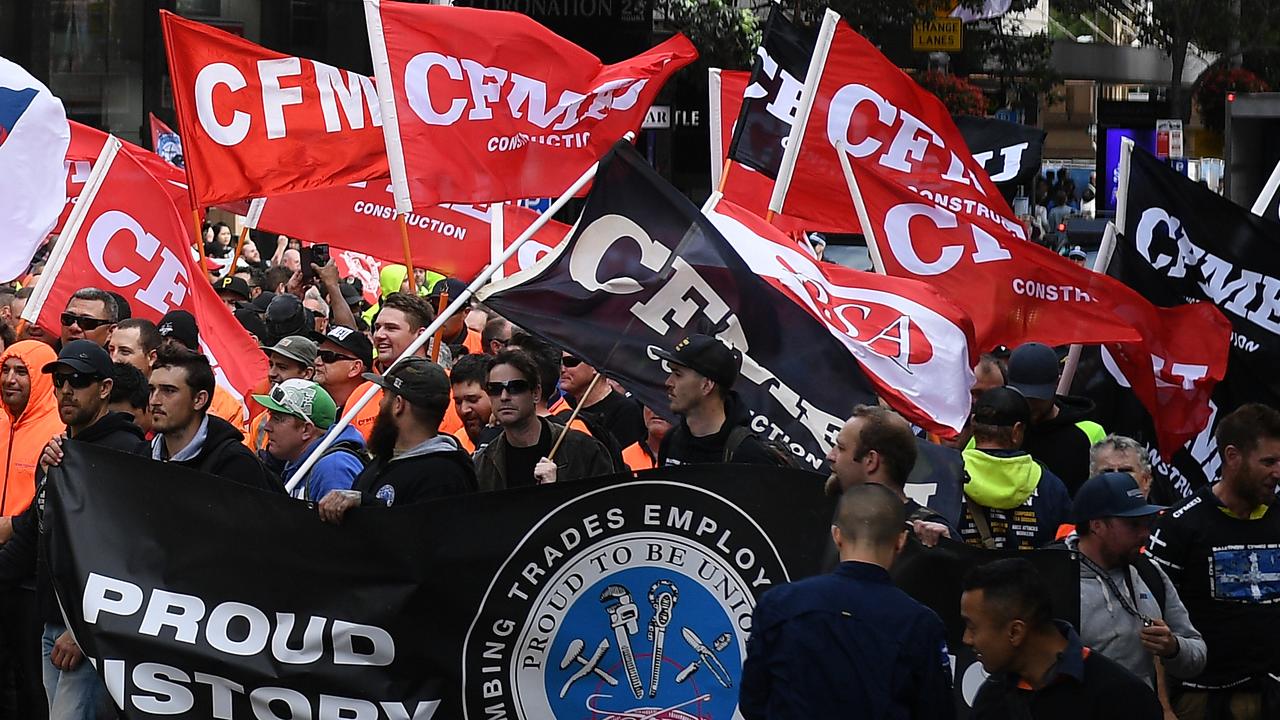Labor conference: pay equity would be key goal of work act
Thousands of workers in female-dominated industries would be more likely to win pay rises under proposed changes by Labor.

Thousands of workers in female-dominated industries such as early childhood, aged care and disability services would be more likely to win pay rises under proposed changes by Labor to equal pay provisions in federal workplace laws.
Ahead of the industrial relations policy debate at the ALP national conference today, Labor also committed to extending a system of minimum pay and conditions in the transport sector — so-called “safe rates” — to employers operating in the gig economy.
After negotiations between Labor and union figures yesterday, sources said it was agreed that discussions would continue between the party and the ACTU in the lead-up to the election about the detail of any industry-wide bargaining framework.
Sources said they expected little change from the draft platform wording, which commits Labor to improving access to collective bargaining, “including, where appropriate, through multi-employer bargaining”.
Unions said they were pushing for Labor to support harmonising industrial manslaughter laws across the states.
In a win for unions, Labor has promised to strengthen the ability of the Fair Work Commission to award pay rises by making gender pay equity an object of the Fair Work Act.
Under the proposed changes, unions and workers will no longer require a male comparator to establish claims for pay rises in undervalued feminised industries.
Labor will legislate a statutory equal remuneration principle to guide the commission’s consideration of whether feminised industries are paid fairly.
It would also set up a pay equity panel within the commission, led by a new presidential member, and a pay equity unit to provide expert research on equal remuneration.
In a joint statement, Labor deputy leader Tanya Plibersek and opposition workplace relations spokesman Brendan O’Connor said low-paid workers should not have to rely on fighting complex, expensive legal cases to secure a decent wage rise.
“We don’t need to compare female-dominated jobs with male-dominated jobs to know that female-dominated industries are often poorly paid — that’s just a fact,’’ they said.
The average woman working in the most feminised industries such as healthcare, social assistance and education is paid around $30,000 less than the average man working in the most male-dominated industries, such as mining and construction.
Of the 21 applications made since 1994, only one equal remuneration order has been made by the commission — pay rises to community sector workers in 2012.
Conference delegates backed the Transport Workers Union’s campaign for “safe rates” in the transport sector, opening the way for an ALP government to reinstate a body similar to the Road Safety Remuneration Tribunal.
TWU national secretary Michael Kaine said the union would hold discussions with Labor and industry representatives about resurrecting a body similar to the RSRT. One option would be for it to operate within the Fair Work Commission.




To join the conversation, please log in. Don't have an account? Register
Join the conversation, you are commenting as Logout